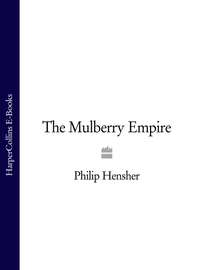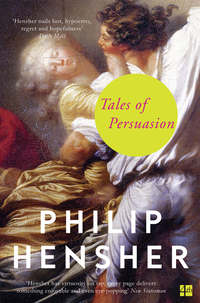
Полная версия
The Northern Clemency
All of a sudden, a boy was by his side, addressing him.
‘Do you see that girl?’ the boy said. Francis recognized him slowly. He must be in his class, he supposed; but there was some familiarity apart from that.
‘Yes,’ he said, though he did not know which girl the boy meant.
‘I think she’s so beautiful,’ the boy said. He was a strange boy: his voice was not ecstatic but robotic, as if he was producing an interesting fact. ‘Venus was the Roman goddess of beauty so I call her Venus.’
Francis did not know what to say to this. The boy was looking away from him across the playground. It seemed that he hadn’t actually been talking to Francis at all, not specifically. His buck-toothed face was flushed, his hair stuck down against his pink forehead. He called out, ‘Venus, Venus, my love, my love,’ and ran away towards the girls. At this they scattered, giving little screams, running off in twos and threes, severally. Francis was alone again; he stared at the concrete in furious amazement. He was alone again.
Francis concentrated very hard on walking round the complete edge of the playground. He pretended that the narrow stone edging to the asphalt square was a tightrope, suspended hundreds of feet above the ground, and he balanced on it carefully, placing one foot in front of another. That was a game you could play on your own and, after a few moments, he forgot almost everything. With arms spread out like wings, he really was walking a tightrope, forgetting whether it was a good game or just something to make yourself look occupied. He was three-quarters of the way round the square when he hit a flight of steps, interrupting its clear progress. On it there was a group of boys and girls mixed up together. He dropped his arms.
‘Were you talking to that Timothy?’ a boy said, addressing Francis.
‘He just came up to me,’ Francis said. ‘He said he was in love with a girl called Venus and then he ran off again.’
‘He calls me that,’ a girl said. Francis wouldn’t have recognized her: she seemed ordinary, not an object of devotion. ‘I wish he’d stop, it’s stupid, I hate him, he’s mental.’
‘Where do you come from?’ one of the girls said. ‘You’re in our class.’
She rhymed it with ‘lass’, but it wasn’t unfriendly, her tone. ‘I come from London,’ Francis said.
‘She’s thick, that Barker,’ another girl said. ‘You’ve got put in the worst class you could be put in. They put people there for punishment, she’s that boring.’
‘“When I was in Africa,”’ a boy said. ‘She should talk to that Timothy, he’s always on about snakes when he’s not calling you Venus.’
‘I’m called Andrea, really,’ the girl said. ‘I don’t know where he got Venus from. I’m going to tell my mum if he carries on.’
‘She’s always saying that,’ the boy said. He raised his voice into a dull shriek. ‘“When I was in Africa.”’
‘Aye,’ they chorused appreciatively. It was a party trick of this boy’s, you could see, the shrieking imitation of, who?, Miss Barker’s voice and her usual sentence. ‘“When I was in Africa.” What’s London like?’
‘It’s all right,’ Francis said. ‘We lived outside London, really.’
‘I’ve been to London,’ a girl said.
‘You never,’ one of the boys said. ‘You’re a right liar, you.’
The consensus of the group was that it was obviously a lie, to claim to have been to London. But Francis was surprised: he thought everyone, always, had been to London. It wasn’t anything to lie about.
‘You don’t want to sit with that Michael,’ a boy said.
‘He smells a bit,’ Francis said.
They all laughed; one of the boys clutched his sides, and pretended to roll about on the ground. ‘You’re a right one,’ a girl said. ‘But it’s true, he’s got a right pong. Miss Barker, she always puts people next to him who can’t refuse, it’s like a punishment, and you have to sit next to him for an hour. She doesn’t mind people who pong. It comes of living in Africa. “When I was in Africa—”’
‘Well, you’ve only had the miserable torment of sitting next to Smelly Michael for an hour,’ a sensible-looking boy, in neatly pressed trousers and a short-sleeved grey shirt with a sleeveless home-knitted sweater, said. ‘You can come and sit next to me, if you like. I’ve not got anyone sitting next to me because Neil Thwaite’s in hospital. He’s got something wrong with his blood.’
‘I heard he’s going to die,’ a girl said.
‘No, he’s not,’ the boy said. ‘I saw him in the hospital, he’s bored. But he’s in hospital a while, so you can sit next to me.’
‘She told me to sit next to that smelly boy,’ Francis said. ‘At my school in London, you had to sit where you were told and then you stayed there all year. I didn’t mind. I was next to Robert who was my friend. But won’t I get in trouble if I move?’
‘No, no,’ they shouted.
‘Anyway,’ the boy said, ‘if she asks, you say, “I can’t sit next to that Michael because I’m allergic to the smell he puts out, it makes me sick and I can’t answer questions and my hand wobbles when I write.” That Michael, his family, they live in a maisonette, they’re right poor. You can sit where you like, so come and sit next to me.’
‘He didn’t know who the prime minister was,’ a girl said. ‘I’m Sally, and that’s Paul, and that’s the other Paul, and—’
‘He was going to be kept back a year because he doesn’t know anything,’ Paul – Francis’s new neighbour – said. ‘But his mum came down and she shouted and they let him go up anyway, but he knows nowt.’
‘He knows—’
‘He knows nowt,’ the other Paul, the impressionist, the playground raconteur said. ‘Don’t you know what “nowt” means?’
Soon, that vocabulary, like the shared and tender vocabulary of friendship, was clarified, and Francis was tenderly aware that if he had walked out of that classroom with near-tears of fright and isolation, he had walked back in surrounded by six immediate friends, and his near-tears were from a different source. They were the last back in, and Francis felt that a wave of shy surprise and interest went through the rest of the class, admiring and envying the bold step that that mixed and sophisticated group had taken in befriending the boy from London without waiting to see what the general view was. Francis felt full of pride at the step he had taken here.
The game began every day at half twelve, once they’d finished their doled-out lunch, bolted it down. Sometimes, too, at half ten and quickly at the quarter-past-two playtime as well, till the luxurious expanse of the game they could play at dinnertime to the point of stitches in their sides seemed almost improbable next to the swift trailer of its morning, its afternoon versions. Francis was absorbed here, both anonymous and accepted, whether a blank member of a playtime cadre, or a person with conspicuous friends, but in either case protected.
At break – that was what they called playtime, whether a more serious or just a more Sheffield word – the game began again, returning to the beginning and each time, somehow, getting a little bit further. It was as if with each attempt they had got a little closer to its essential heart, to some prize it concealed, like a team of adventurers taking turns to whittle at some initially unpromising and rude block. Inside there was some prize.
That was it, the allure of the game. Though there was not and could not be any real prize, it seemed far more like a formal, famous game, the sort you played under gracious adult supervision at a celebration, a birthday party, and yet infinitely more violent and exciting. It did not seem like a playground enterprise of shamefaced silliness, of rhymes and stomping that no adult could be allowed to hear, but like a brilliant expansive entertainment with printed rules, played in your best clothes, but with the dazzling promise of unconstrained fury, too. It was a game that should have been put away for best occasions, and was played, irresistibly, every day.
But outside the game and its allotted hours, his social standing was obscure. He felt himself good at the game through something barely commented on by others or previously noticed by him: his height and swiftness. He had grown up into this scale and, in London, the moment to observe any change or the disproportion had never presented itself. But to arrive here in such a state, taller than anyone else in the class and faster too, as the game proved, made him obvious to them and to himself. In the playground, and to his immediately acquired circle, that was something fine, dangerous, admired; outside it, it seemed to make him only conspicuous.
One day, during PE, Miss Barker set them a race in the playground, a relay race between four teams. Each runner was to touch a marked-out point at the middle of each straight border; Miss Barker marked them, and those were the rules. The first runners from each team set off, and ran along the border of the whole playground. It seemed that they had not understood, and when it came to Francis’s turn, third in his team, he set off directly, running only between points, carving a small diamond like the points in a game of rounders. He was not stopped, and got home twice as fast as the other teams; the other runners in his team followed his example, and the others, doggedly, to their longer route. He had done the right thing, it turned out, but his height and swiftness, as well as this spirit of enterprise, had marked him out.
A few weeks after arriving, at the beginning of a lesson, as they were sitting down red-faced and busy after morning playtime, Miss Barker came into the classroom. The fourth years had been in the classroom before then, and on the board was an abandoned impatient tangle of x and y, the obscure and useless corners of the alphabet, mixed incredibly with numbers, some normal-sized, some shrunk and sent to the top of a letter like a scratch on the forehead, symbols poetically abstruse and, for the moment, as blank as the hieroglyphs of a kingdom disinterred from the sand; a frail language occasionally glimpsed about the school that it seemed impossible he, or any of them, should ever comprehend or, like French, converse in and, looking at it, he brought a measure of wilful ignorance even of those fragments he could have understood. Miss Barker sighed, sagged. ‘Francis,’ she said, her eyes not quite alighting where she spoke, ‘could you come and clean the blackboard before we start?’ She had not quite addressed him by name until then, not since she had introduced him to the class, but Francis was up quickly and taking the board rubber from her somewhat unwilling grasp. ‘Yes – all right then,’ she said oddly, with a half-smile to his side that he didn’t understand, and let him do the task, slowly and seriously. It was the first task he’d been asked to undertake in front of the whole class, by name; now they couldn’t go on calling him ‘new kid’. There was a sort of buzz in the room. When he had finished, he went back to his seat. The two girls behind him were scowling at him, and as he sat down, one of them – yes, her name was Frances, wasn’t it? – kicked his chair hard.
‘She di’n’t mean you,’ the girl said, not lowering her voice, and Miss Barker, before embarking on another of her unplanned and circuitous ‘lectures’, an improvised and loose chain of her morning’s happenstance thoughts, was pleased to say, ‘Well, Frances…’ she paused like a skilled comedian awaiting what indeed came, an appreciative laugh ‘…I’m sure you can do it next time. If our new friend from London will let you.’ As if he had no right to his own name, and she’d politely forgotten it out of good taste. The class laughed, and not at the old woman. Francis felt heat in his face.
‘He’s right tall, that new kid,’ the girl behind him said derisively to her glued-on friend at the end of the ‘lecture’, meaning him to hear. ‘It looks ridiculous, being as tall as that. Someone ought to say something to him, that new kid.’ And then it was time for the game again.
‘She’s horrible, that old Barker,’ Anthony said, as they were sitting on the steps, wrapped in coats and scarves, Anthony’s coat a broad yellow check, handed down from a brother, with orange mittens hanging from his wrists by sewed-on strips of elastic.
‘She’s mental,’ Susan said, a nice girl with an always blocked nose, the snot perpetually at the rim of her nostrils; she had hair like a dog’s. ‘She’s boring and mental, too,’ she said. ‘The way she goes on, one thing after another, it makes no sense. Are you supposed to be taking notes, or what?’
‘And mardy,’ one of the Pauls said – one of those words, Francis was working out what it meant, the limits of its meaning, and then he’d be using it too.
‘I say,’ Andrew said – he was addicted to this archaic opening style, odd in his Sheffield voice, or in any voice, these days, and had once asked Francis shyly if he had ever heard of a book called Jennings, ‘it was before you came, you know,’ a tactful way of saying the unmentionably rude, alluding to a time when your friend didn’t exist, ‘but our last teacher in Two CL, she was ill once a whole week and we had Barker, and she just came in and lectured like she does now, and we were meant to do maths and geography, all sorts. Well, she said then that once she were out on the moors driving with a friend, she said, and she sees a little boy by the side of the road and she, they stop and, and they say, “Can I give you a lift?” and the little boy says, “No, me mam says don’t take lifts off strangers.” And she said, “Well, isn’t that a shame, that you can’t offer a child a lift, when he’s on his own, out on the moors?”’
‘I wouldn’t get in a car with that Barker,’ Francis said boldly, and they all laughed.
‘That’s it,’ Andrew said, quite seriously. ‘I told m’dad, and he reckons that, you know the Moors murders, when they done them kids in, over Manchester, he reckons that after them, they were shut up, there were some more murders, and he reckons they didn’t get all the murderers. So m’dad, he says, do you think that old Barker, she’s one of the Moors murderers and she never got caught?’
He was so serious in his face, and it made Francis jump when Sally gave him a scoffing push. ‘Your dad never said that,’ she said. ‘Not your dad. You’re mental, you.’
‘No, though,’ Anthony joined in, quite crossly, ‘there were this kid, right—’
‘Oh, shut up,’ they all said, and went to play the game.
The girl who sat behind Francis was called Frances, and beside her, her best friend was called Tracy. They had been each other’s best friends since the very first day at infants’, when they’d been sat next to each other, and they’d always be best friends. They had each other, bossing and sniping, and Tracy thought Frances the loveliest name in the world. She wished she was called – well, not Frances, that wouldn’t make sense, but a name that was lovely just like Frances was a lovely name. She thought about it all the time, about not being called Tracy.
‘Why did you call me Tracy?’ she said to her busy mother in the hall of their Crosspool house. It wasn’t the first time she’d asked.
‘I just liked the name,’ her mother said. ‘Are you putting your coat on, or do I have to do it for you?’
‘I wish I was called something else,’ Tracy said.
‘You’ll be late for Sunday school,’ her mother said, ‘if you don’t get a move on.’ They were out of the house now, the door shutting tight behind them, her mother taking Tracy’s hand.
‘Why’s m’dad not coming to church?’ Tracy said.
‘He’s got to work today,’ her mother said.
‘I wish,’ Tracy said, but she stopped herself; she was about to say that she wished her dad didn’t work in a coal mine. ‘I wish I was called something else.’
‘There’s nothing wrong with “Tracy”. It’s a nice name,’ her mother said, not knowing what Tracy had been going to say.
I wish my dad didn’t work at the mines, she thought. It took all those explanations. What does your dad do? He works for the Coal Board – not down the mines, he’s not a miner, but he works at the mines, he works up at the top, he only goes down the mine sometimes, he doesn’t work down the mine. She wished he had another sort of job, a job like, for instance, the job Frances’s father had, managing a supermarket. What does your dad do? ‘Oh, he’s a bank manager,’ she heard herself saying. ‘I wish I was called Sara,’ she said out loud.
‘Sarah?’ her mother said. ‘Why the heck is being called Sarah better than being called Tracy?’
‘Not Sarah, Sara,’ Tracy said. ‘There’s no h, you say Saaara.’
‘The heavens preserve us,’ her mother said, ‘and what’s that on your face? My Lord—’ and outside the church, she whipped out a handkerchief, spat on it, and rubbed briskly at Tracy’s face. ‘How you manage to get a smut on your face ten seconds after leaving home, I’ll never understand.’
‘Frances doesn’t go to church,’ Tracy said. ‘She says they don’t believe it. They go to the garden centre usually.’
‘I dare say,’ Tracy’s mother said, not hearing this for the first time, ‘but in this family, we go to church.’
‘Is Frances going to go to hell?’ Tracy said.
‘I’ve had enough of your cheek for one morning,’ her mother said, hissing under her breath as they took their places in one of the back pews.
So on Monday morning Roy, Tracy’s father, set off for work with a feeling of rank injustice at having had no weekend. On a Sunday, too, he observed. It wouldn’t have been so bad, but living right on the other side of Sheffield, it was a good half-hour in the car even on a Sunday morning, and for what? Sometimes he felt like insisting on moving back to where he’d come from, five minutes from the pit. But she was right, really; the schools were better on that side, and with the way he’d moved up from the job his father had done, hacking away in the dark, to a job up top, managing and holding meetings, making decisions in a suit and a tie every morning, it was as well to live somewhere else. These days, particularly. It used to be that the managers lived a street or two from the men, but nowadays those bigger houses, imposing as they were, were lived in by miners just the same or lay empty.
The traffic wasn’t too bad, apart from the roadworks on the Wicker, which had been going on for months now, and he was in the car park at quarter to nine, locking the yellow Capri and striding into the office with his hard black lockable briefcase. The car park was full; the men, too, had their cars now, and they’d had to reserve the management’s places, each job described with white paint on the asphalt. The charcoal buildings, the meccano towers and conveyor belts had a temporary air, like the great heaps of slag all about; even the sign at the entrance and the gates were cheap and temporary, like the signs on building sites.
He said a quick good morning to Carol and Norma. ‘You’re meeting John Collins at eleven thirty,’ Norma called after him.
‘I’d not forgotten,’ he said, as he shut the door to his office. Collins was the NUM man, not as bad as some; they were the same age, they’d been at school together, and they got on as well as could be expected after last year’s shenanigans. After all, Roy was a miner, had been, and his father; that still counted for something. ‘I’m down below first, if anyone wants to know,’ he called, already pulling off the jacket of his suit, hanging it carefully on the coat hanger on the hook behind his chair.
There was nothing particularly wrong; Hoppelton, the mine manager, liked the management to go down the pit at least once a week, whatever was up. Some of them did it at the same time each week; Roy liked to be a bit spontaneous, talk to the men, keep them on their toes. Monday morning was as good as any other time. The girls knew not to come into the office without knocking firmly on the plywood door and waiting for a response. He opened the door of the grey metal locker where the miner’s outfit was kept. He neatly untied his tie, undid his tiger’s-eye cufflinks – they matched the fat orange-and-brown tie, Tracy’s present to him last Christmas though chosen with her mum (they smiled at him from a frame on his desk). He undid his shirt, hung it up, his trousers on the hanger, bouncing them a little to keep them pressed, and then his vest, pants and socks, folding them neatly and placing them neatly, with the rest of his clothes, in a suit-carrier to take over to the pit baths.
It was important to undress completely before starting to put on the miner’s kit; it wasn’t strictly procedure, but he liked to keep these things separate. Everything was kept separate; there were even underpants handed out from Stores; a bit like being in the Army again, he’d thought the first time he’d collected some. He’d never quite got used to putting on communal pants, owned by the mine, the NCB, the Government, he supposed in the end. But he wasn’t going to buy himself his own special pants. More trouble than it was worth. They were grey and frayed, but as clean as they could be got. The socks, and then the bright orange all-in-one plastic-coated boiler-suit, the hard inflexible plastic boots with the metal toecaps, and with the helmet and gloves, he was ready to go. ‘I’ll be two hours,’ he said to the girls as he left, walking through the office, his suit carrier in his hand, with a completely different walk from the way he’d walked in, stomping as he went. They nodded; they’d plenty to be getting on with.
Конец ознакомительного фрагмента.
Текст предоставлен ООО «ЛитРес».
Прочитайте эту книгу целиком, купив полную легальную версию на ЛитРес.
Безопасно оплатить книгу можно банковской картой Visa, MasterCard, Maestro, со счета мобильного телефона, с платежного терминала, в салоне МТС или Связной, через PayPal, WebMoney, Яндекс.Деньги, QIWI Кошелек, бонусными картами или другим удобным Вам способом.







